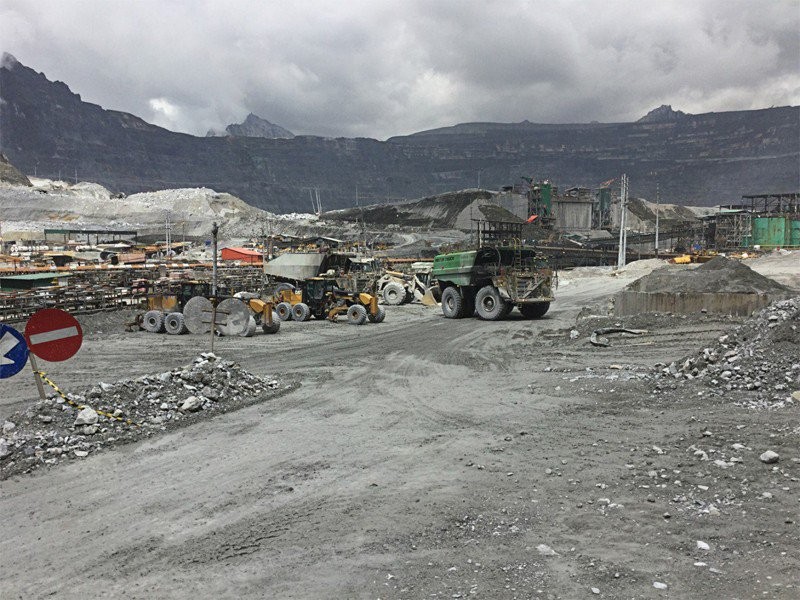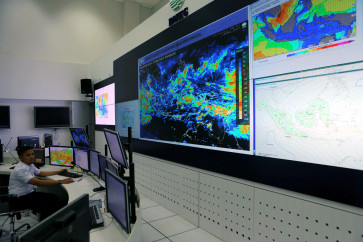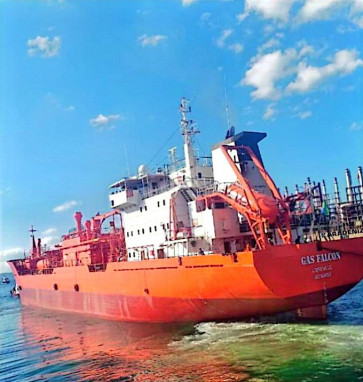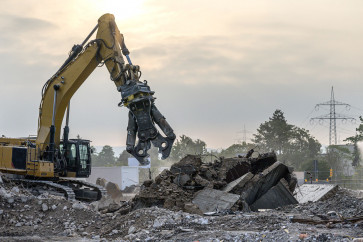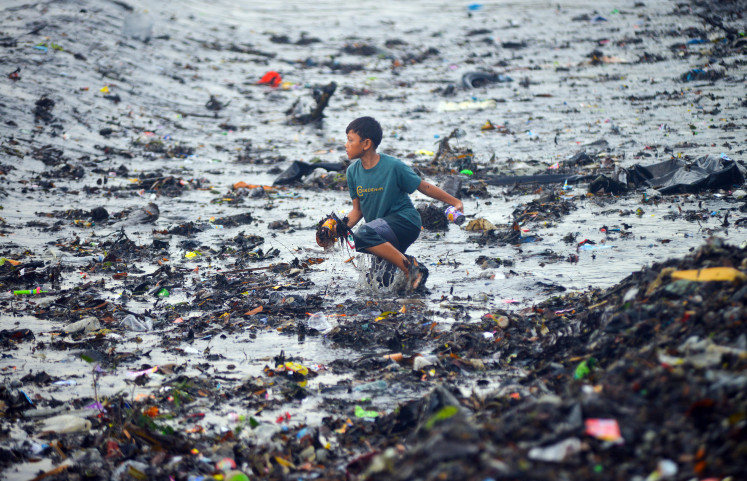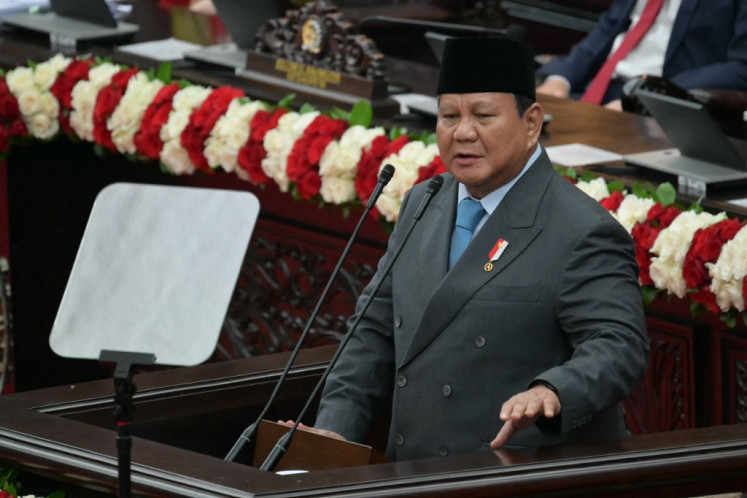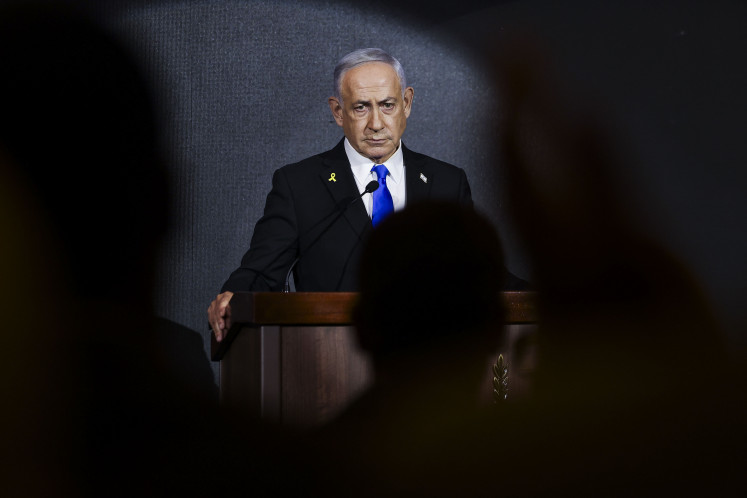Popular Reads
Top Results
Can't find what you're looking for?
View all search resultsPopular Reads
Top Results
Can't find what you're looking for?
View all search resultsSmelting industry held hostage by policy uncertainty
Change text size
Gift Premium Articles
to Anyone
A
plan to allow more exports of raw and partly processed mineral products has irked businesses that have already invested heavily in smelters intended to add value to mineral ores and generate a multiplier effect for the economy.
The businesses argue that such a policy would not only send a chilling message to the international community that Indonesia cannot hold to its commitments, but also harm the downstream industry and put more pressure on the global prices of several mining commodities already experiencing a supply glut.
A draft regulation prepared by the Energy and Mineral Resources Ministry, a copy of which was recently obtained by The Jakarta Post, will allow companies with mining licenses (IUP), or special mining licenses (IUPK), or former holders of contracts of work to have the privilege of getting five-year export licenses.
Partly processed or raw nickel, bauxite, anode slime and copper telluride will be on the list of products allowed for overseas shipment. Companies will also be allowed to resume the export of copper concentrate.
The only requirements from the government are for the companies to pay an export tax and construct a smelter.
“Don’t play around with such a high-risk policy. There have been many smelters developed recently and once we open the exports gate the outflow will be unbearable,” Indonesian Smelter and Mineral Processing Association (ISPA) chairman R. Sukhyar told the Post on Monday.
“The domestic industry will be left in turmoil as miners will prefer to export the mineral ores.”
Foreign investors, mostly from China and Russia, have flocked into Indonesia after a 2009 Mining Law requires a total ban on raw and partially processed mineral exports, encouraging many to set up processing plants to take advantage of the law.
According to the Processing and Smelting Companies Association (AP3I), there have been 32 new smelters built in the country — 24 of which are nickel smelters — within the past four years with a total investment of about US$20 billion.
The smelters are expected to add value to the end products, as opposed to exporting ore in its raw form, and to prevent mining wealth from being exploited by overseas businesses.
“Investors will be confused with such a flip-flop policy,” said Sukhyar.
“Speculation surrounding the planned relief has already put Indonesia in an unfavorable situation because as investors wait for certainty they suspend business and decision making,” said Sukhyar, a former Energy and Mineral Resources Ministry’s director general for minerals and coal.
Sukhyar said the industry now worries that opening up exports of nickel ore and bauxite ore could undermine the global prices of these commodities and their semi-processed forms, which are already suffering from an oversupply.
During his presidential campaign and first year in office, President Joko “Jokowi” Widodo pledged to maintain the ban and expand it into a fully enforced prohibition.
However, the draft regulation contradicts the pledge as the government is in dire need of cash from royalties and taxes paid by several large mining companies amid a shortfall in tax collection caused by sluggish economic activities.
Gold and copper miner PT Freeport Indonesia, a local unit of US mining corporation Freeport McMoRan Inc., to cite an example, contributed $2.4 billion in royalties and $1.5 billion in non-tax state revenues (PNBP) from 2010 to 2015.
Observers have said that if the company is not allowed to resume exporting copper concentrate, the government and the people of Papua, the province where the company is operating, will suffer greatly.
The company has been allowed to export after pledging to construct smelting plants and agreeing to pay export taxes with rates linked to the progress of construction, which has been stalled.
However, its export licenses will expire when the 2009 Mining Law is set to be fully enforced after Jan. 11, 2017, with the government rushing to decide whether to maintain the current relaxation or to fully enforce the ban.
According to the Finance Ministry’s directorate general of the treasury, income from export duties was 25 percent short of its target this year and a three-year to five-year mineral export extension for mining companies like Freeport can help the government secure revenues, considering that the country will still be able to sell the raw commodities abroad at contracted prices.
AP3I deputy chairman Jonatan Handojo said the privilege enjoyed by Freeport should not be a catalyst for others to demand the same facility as he understood that many nickel and bauxite mining companies were also lobbying to have the ban lifted amid the government’s dire need for revenues.
Jonatan said there had been too many foreign investors putting their money into the country, particularly from China, in the hope of benefitting from the downstream industry after they were no longer be able to maximize the operation of their nickel smelters in China because of a lack of supply following Indonesia’s export ban. “Once the policy is eased, I can imagine how they will be extremely furious.”
Indonesia is among the world’s top producers of nickel, bauxite and copper.

